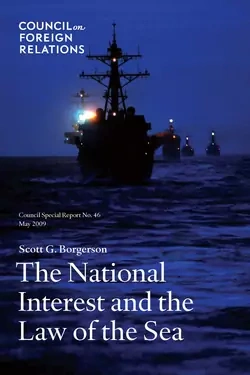
The National Interest and the Law of the Sea

- Council Special Report
- Concise policy briefs that provide timely responses to developing crises or contributions to current policy dilemmas.
More on:
Overview
The oceans have long been a critical arena for international relations. Before there was air travel and instantaneous communication, people, goods, and ideas traveled the world by ship. For centuries a strong maritime presence—both military and commercial—has been essential for states with great power aspirations. Today, even with advances in technology, seaborne commerce remains the linchpin of the global economy. As the International Maritime Organization reports, “more than 90 percent of global trade is carried by sea.” And beyond trade, a host of other issues, ranging from climate change and energy to defense and piracy, ensure that the oceans will hold considerable strategic interest well into the future.
In this Council Special Report, Scott G. Borgerson explores an important element of the maritime policy regime: the United Nations Convention on the Law of the Sea. He examines the international negotiations that led to the convention, as well as the history of debates in the United States over whether to join it. He then analyzes the strategic importance of the oceans for U.S. foreign policy today. The report ultimately makes a strong case for the United States to accede to the Convention on the Law of the Sea, contending that doing so would benefit U.S. national security as well as America’s economic and environmental interests. Among other things, the report argues, accession to the convention would secure rights for U.S. commercial and naval ships, boost the competitiveness of American firms in activities at sea, and increase U.S. influence in important policy decisions, such as adjudications of national claims to potentially resource-rich sections of the continental shelf.
The National Interest and the Law of the Sea offers a combination of historical, legal, and strategic analysis. It illustrates how much of what the United States seeks to do in the world—be it deploying military forces abroad or ensuring adequate supplies of energy—depends in large measure on the sea. The result is an important contribution on a set of issues that has been central to national power and foreign policy for centuries.
More on:
 Online Store
Online Store